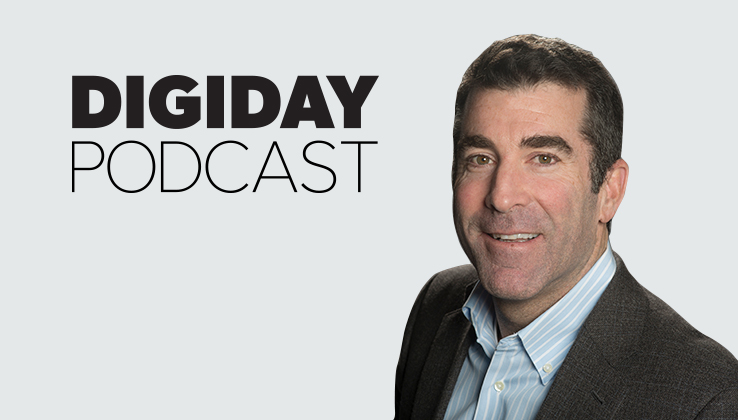Secure your place at the Digiday Media Buying Summit in Nashville, March 2-4
Washington Post’s Jed Hartman: The industry needs to stop whining about the duopoly

Subscribe: iTunes | Stitcher | RSS
While Google and Facebook hamper publishers’ efforts to grow digital ad dollars, The Washington Post CRO Jed Hartman said on this week’s Digiday Podcast that publishers need to figure out their unique value and stop “whining about the platforms.”
“I would rather find our unique selling proposition and exploit that as best as possible, partner when necessary and go on our own other times,” he said. “[The duopoly is] good at selling advertising. We will bring a different value.”
Below are highlights, edited for clarity.
The Jeff Bezos effect
“There is an experimentation culture. You do everything you can to make that experiment work. Jeff [Bezos] is really involved, and he’s the chief inspiration and innovation officer for focus on product and a frictionless customer experience. Another Jeff-ism is, if it’s core to your business, why would we outsource [our CMS]? Google doesn’t do it.”
The paywall, not Trump, is behind the subscription growth
“Trump has made politics pop culture, whether you love or hate his tweets and policy. But he’s fascinating. It brings more people to the Post because it’s a part of our DNA. But we saw a surge in subscriptions after we tightened our paywall to three [free] articles a month. Fake news has made people want to go to brands, which they trust will fact-check. But if you put up a paywall, where is the user going to go? They trust you. So they are more likely to pay you and drive your subscription business.”
Building a CMS for the Post
“We built a CMS for our business because there was no CMS that worked for us. Not many publishers invest deeply, so why would the platforms invest to make it the best? So we built a platform called Arc. And we like it, so maybe others will like this. Many other publishers use this. It’s a legitimate revenue stream right now.”
Competing with the platforms
“The pendulum swung massively to audience because technology allowed for that. I feel a swing back to quality, fueled by the conversation around brand safety, ad fraud, bots and trust. But we won’t see that in the numbers for a very long time, if ever. The convenience of pushing a button and reaching your audience to buy Facebook or Google is very appealing. But there’s an enormous global ad market. There’s a lot of money for great companies if they have a unique value that is not commoditized.”
More in Media

Media Briefing: Turning scraped content into paid assets — Amazon and Microsoft build AI marketplaces
Amazon plans an AI content marketplace to join Microsoft’s efforts and pay publishers — but it relies on AI com stop scraping for free.

Overheard at the Digiday AI Marketing Strategies event
Marketers, brands, and tech companies chat in-person at Digiday’s AI Marketing Strategies event about internal friction, how best to use AI tools, and more.

Digiday+ Research: Dow Jones, Business Insider and other publishers on AI-driven search
This report explores how publishers are navigating search as AI reshapes how people access information and how publishers monetize content.





